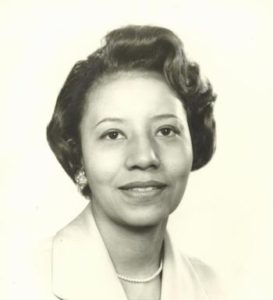
Willie S. Glanton
*Willie S. Glanton was born on this date in 1922. She was a Black lawyer and politician.
Willie Stevenson was born in Hot Springs, Arkansas, and was the daughter of Ervin S. Stevenson and Willie Ever Parker. She graduated from Tennessee State University and Robert Terrell Law School in Washington, D.C., and was admitted to the Iowa Bar in 1953. She pioneered the legal and political landscapes as Iowa's first Black woman assistant county attorney in 1956 and as a state representative in 1964. Glanton and Waterloo's James Jackson broke the color line in the Iowa Legislature and opened the gate for a wave of African American political activity in the late 1960s.
Willie Stevenson Glanton was dedicated to the law, human services, and civil rights. In the 1960s, the U.S. State Department sent her to Africa and Southeast Asia to compare laws and their application to women. In the U.S., Glanton was the first woman Assistant Polk County Attorney. She has been an attorney and equal opportunity advocate with the Small Business Administration since 1966. She held leadership positions on numerous boards, commissions, and councils and in church, civic, and community organizations.
A member of Who's Who in America, she is the first woman and first Black to be elected president of the Iowa Chapter Federal Bar Association. She represented that association in a people-to-people tour of China, Finland, and the Soviet Union in 1986. Glanton was inducted into the Iowa Women's Hall of Fame in 1986. She became the first black attorney at the U.S. Small Business Administration in 1966 and the first African American member of the Des Moines City Council on an interim basis in 1985. Glanton was a tireless civil rights activist and role model for young African American women seeking higher education and professional careers.
Her late husband, Luther T. Glanton Jr., was Iowa's first Black judge; they had one son, Luther T. III. In 1986, she was inducted into the Iowa Women's Hall of Fame. In 2010, she was named one of the ten most influential Black Iowans by The Des Moines Register. She died in Des Moines on July 6, 2017.
